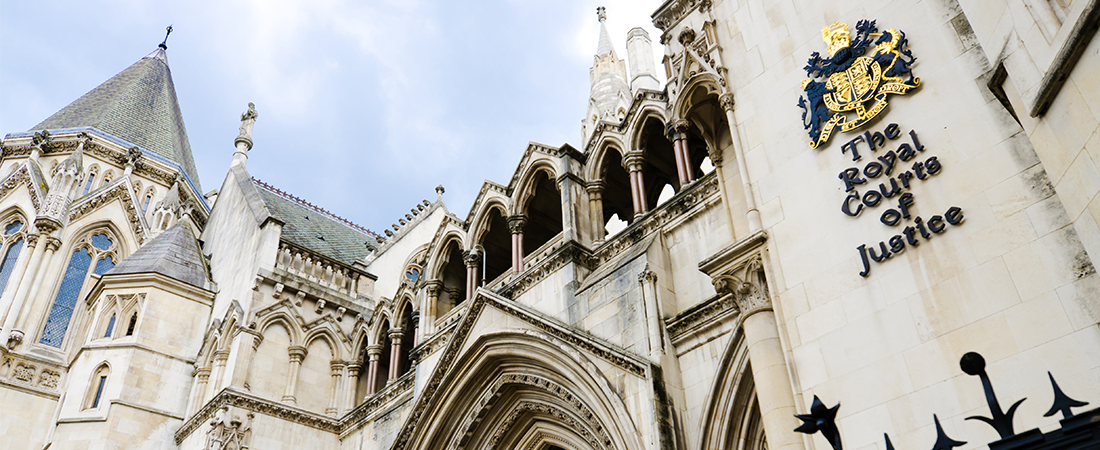Portland recently hosted an event which looked at ways in which London can be promoted as a leading centre for resolving disputes. Portland’s Philip Hall, Managing Director and Head of the specialist Litigation Communications practice, was joined by:
- Richard Bamforth, Partner at law firm CMS and Co-Chair of London International Disputes Week
- Helen Dodds, Director of LegalUK and former Global Head of Dispute Resolution at Standard Chartered Bank,
- Sarah Zokay-West, Head of Business Development for the Contentious Practice at law firm Travers Smith, and Member of the LIDW strategy group
The discussion included identifying the hot topics for the future of dispute resolution, why people should and do choose London as the jurisdiction in which to litigate, and what challenges London is facing.
But why is this important?
Legal services, and in particular the resolution of disputes is a large industry in the United Kingdom. In 2021, UK legal services revenues were £32bn, exports £7bn, and the trade surplus £5.5bn.
So, what are the hot topics in dispute resolution right now?
The role of AI and in particular ChatGPT is an area that all disputes lawyers should be following closely, according to Richard Bamforth. While it can, on first glance, produce fairly sophisticated answers to legal questions, he noted that there are limitations to the tool – for example, it cannot provide insights into the future thus not accounting for the evolving English law.
Outside of the rapidly evolving area of technology, Richard noted that the rise in ESG-litigation is driven by increased societal awareness of rights and obligations. In practical terms, it means we are seeing more activism and actions targeted at the big corporates and at governments. He has noticed a rise in shareholder actions, class actions, and NGOs using litigation to pursue their agendas.
Portland’s 2022 Class Action report found that 57 percent of the UK would be interested in joining claims against companies accused of causing environmental damage.
Sarah added that in order to add maximum value to the legal teams, it is important to have a good understanding of the external market and of the factors that are shaping it. This includes how technology can benefit clients in making things quicker, cheaper, or better, and where might we get left behind if we don’t embrace these changes.
What are we seeing in other jurisdictions?
The attractiveness of a strong dispute resolution sector means several jurisdictions are investing heavily in the promotion of their courts and infrastructure. This is true across Europe – especially post-Brexit where there have been bids to tempt dispute resolution business away from London through English language courts being set up in France, Germany, and the Netherlands.
However, the international focus on disputes resolution was evident long before Brexit, with jurisdictions including the Gulf and Singapore establishing sophisticated offerings for resolving both litigation and arbitration.
As such, a strong and fair dispute resolution capability is seen internationally as key underpinning for economic success in any country. This is because it not only drives revenue from legal activities but also provides reassurance needed for inward investment generally. This applies as much to the UK as anywhere else.
Considering this, why do people continue to choose London?
According to Helen, there are three main reasons why London maintains its competitive edge over other jurisdictions:
- There is a business and commercial reason to choose London: a large proportion of the world’s business is done in the English language and the contracts underpinning that business use English law. This is supported by the adaptability of the common law system in which we operate.
- Parties get added value from the English courts and judiciary: it is widely agreed that English courts are not subject to corruption and not swayed by political considerations. Further, the judges that adjudicate cases in the English courts are incredibly able and understand the realities of the commercial world.
- The agglomeration effect makes it attractive as all litigation support providers are available in London. This includes expert witnesses, forensic support, LawTech and LegalTech, funders, and specialist communications advisors.
What challenges is London facing to its leading position?
Singapore is the example cited by Helen, which has had a complete overhaul of its courts and cut lists to create efficiency. It has benefited from very active government support and promotion, and has raised its profile through marketing and high profile policies such as the introduction of the Singapore Convention which has received global recognition.
Further, courts in the Gulf such as the DIFC are able to address the judicial standards challenge by hiring top retired judges from around the world, many of whom are English.
So, how can London retain its leading position?
Outside of the law there are other key areas that can and should be invested in:
- Infrastructure, through a combination of buildings and technology. There is debate over whether court is a place or a service. However, buildings remain important as they symbolise the history of our system but should be cutting edge to send a signal that we lead the way.
- Government led initiatives such as the UK Government GREAT campaign and trade missions. The Law Society does quite a lot in this area, and there are events such as LIDW which provide a space for the whole community to come together.





